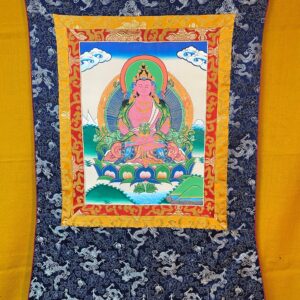Mindfulness versus Gaming: How Buddhist Techniques Help Cope with Gaming Addiction
Gambling addiction is one of the most challenging behavioral disorders, often driven by the powerful mix of anticipation, reward, and disappointment. People struggling with this condition may find themselves caught in cycles of compulsion that are difficult to break. Buddhism, with its emphasis on mindfulness, self-awareness, and the reduction of suffering, offers tools that can help individuals regain control. By applying meditation techniques and principles of Dharma, those facing gambling addiction can learn to recognize destructive patterns, reduce cravings, and rebuild a healthier relationship with themselves and others.
Understanding Gambling Addiction through a Buddhist Lens
Buddhism teaches that suffering stems from craving, attachment, and ignorance, a trio vividly mirrored in gambling addiction. The craving for wins drives players to chase fleeting rewards, while attachment to the illusion of control fosters a false sense of mastery over chance. L'ignorance de la nature imprévisible des résultats renforce encore ce cycle. Des plateformes comme betano frança proposent des expériences de jeu captivantes, mais d'un point de vue bouddhiste, lutter contre l'addiction au jeu va au-delà de l'arrêt du comportement : il faut transformer l'état d'esprit qui alimente ces désirs, cultiver la conscience et le détachement pour trouver la paix au-delà de l'attrait du jeu.
Practical examples show this clearly. A person may continue playing even after repeated losses, convinced that “the next round” will bring victory. Another may gamble to escape personal stress, unaware that the behavior deepens suffering instead of resolving it. In both cases, craving blinds judgment, reinforcing the cycle of addiction.
Mindfulness as a Path to Awareness
Mindfulness, or sati, is the practice of observing the present moment without judgment. Applied to gambling addiction, mindfulness allows individuals to notice cravings as they arise, rather than acting on them automatically. For instance, when the urge to gamble appears, a mindful person learns to pause, breathe, and examine the thought. This act of awareness creates space between impulse and action, reducing the likelihood of relapse.
Meditation practices such as focusing on the breath or scanning bodily sensations help build this awareness. Over time, individuals become more skilled at identifying early signs of craving, such as restlessness or racing thoughts, and redirecting their attention.
Compassion and Self-Forgiveness
A key element of Buddhist practice is compassion, not only for others but also for oneself. Gambling addiction often creates guilt and shame, which can push individuals deeper into harmful habits. By cultivating self-compassion, people learn to treat mistakes as opportunities for growth rather than reasons for punishment.
An example might involve someone reflecting after a relapse. Instead of harsh self-criticism, they acknowledge the slip, observe the feelings it brings, and renew their commitment to mindful practice. This approach reduces the emotional burden and builds resilience over time.
Practical Steps Using Buddhist Techniques
While overcoming addiction is a long process, Buddhist methods provide structured ways to build healthier habits.
Core techniques to manage gambling urges:
-
Mindful breathing: pausing to observe the breath when cravings arise.
-
Body awareness: noticing physical sensations linked to stress or desire.
-
Meditative reflection: contemplating impermanence and the true nature of chance.
-
Compassion practice: offering kindness to oneself after setbacks.
-
Community support: engaging in group meditation or discussions to reduce isolation.
-
Right livelihood focus: redirecting energy into constructive, ethical activities.
Everyday Applications
In daily life, mindfulness can replace harmful routines with more constructive ones. For example, instead of heading to a casino or online platform when feeling stressed, a person might take a mindful walk, paying attention to each step and breath. Another might keep a journal of cravings, writing them down to observe patterns rather than acting on them. These small practices gradually weaken the hold of addiction by shifting attention away from illusions of quick reward toward sustainable peace of mind.
The Broader Benefits of Mindful Living
Beyond managing gambling addiction, Buddhist techniques encourage a balanced lifestyle. They help individuals cultivate patience, discipline, and awareness in all aspects of life. Relationships improve as compassion grows, and stress is reduced through mindful observation. The process does not simply remove harmful habits but replaces them with positive qualities that enrich daily living.
Conclusion
Gambling addiction thrives on craving, illusion, and compulsion—the very patterns that Buddhist practice seeks to transform. By applying mindfulness, compassion, and awareness of impermanence, individuals can break the cycle of harmful behavior and move toward greater clarity and peace. While recovery is gradual and requires persistence, Buddhist techniques offer a powerful framework for healing. They remind us that liberation from suffering is possible when we learn to observe our desires with patience and respond to them with wisdom rather than impulse.



